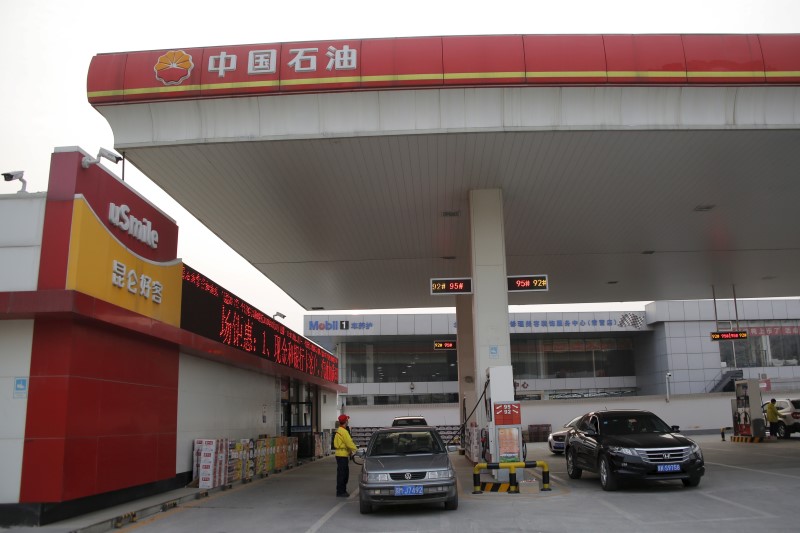(Bloomberg) -- Asian oil refiners, beware. China’s churning out cheap gasoline and it’s pulling the rug from under the sector’s recovery.
Chinese fuel producers are ramping up gasoline exports as stockpiles stay swollen amid softer demand due to flooding and a resurgence of virus infections. This comes after a short reprieve in May when some state-owned refiners diverted more motor fuel to local markets when people opted for private over public transport, supporting post-lockdown consumption.
The country’s average daily exports of gasoline in July is currently at the highest level in four months as Chinese refiners pour more gasoline into regional markets. The flood of spot cargoes into Asia contributed to weaker gasoline prices in the region and caused prompt supplies to fall to a discount to later-loading oil, also known as a contango.
“We expect Chinese gasoline exports to increase heavily over the third quarter in line with higher planned refinery runs and improving export margins,” said Sandra Octavia, an analyst at Energy Aspects, estimating shipments will rise to 350,000-400,000 barrels a day this quarter. “Over the near term, gasoline cracks and spreads risk a downward correction on higher regional supplies.”
Shipments of the motor fuel from China averaged 294,400 barrels per day this month through to July 16, the highest since March and up from 226,400 barrels a day in June, according to energy analytics firm Vortexa Ltd. Exports in May tumbled after Sinopec (NYSE:SHI), PetroChina and one of Sinochem’s largest refineries pulled back on foreign sales to prioritize local customers.
Squeezed Profits
While Chinese refiners enjoyed better returns from local fuel sales when oil was under $40 a barrel -- thanks to a floor price that prevented domestic fuel costs from falling beyond that point -- these processors no longer have an incentive to sell within the country following oil’s rebound.
Now, as more Chinese gasoline supplies enter the Asian market, profits from turning crude into the motor fuel are easing alongside falling spot differentials for physical cargoes. The rebound in so-called gasoline crack spreads have since taken a pause, data from Bloomberg Fair Value showed, while spot differentials for physical cargoes slipped.
Last week, state-owned CNOOC (NYSE:CEO) sold a shipment of gasoline for loading in August at a discount of 40 to 60 cents to the Singapore benchmark price, compared with a July cargo that traded last month at between parity and a premium of 20 cents. China’s West Pacific Petrochemical Corp. also sold a gasoline cargo for loading in mid-August at a sharp discount last seen during the peak of the virus outbreak in March, said traders who asked not to be identified.
Chinese fuel makers have increased their gasoline exports due to factors such as lower margins from marketing fuels domestically, said Serena Huang, lead Asia analyst at Vortexa. Singapore remains the favored destination for Chinese gasoline, followed by the Philippines and Australia, she added.
©2020 Bloomberg L.P.
